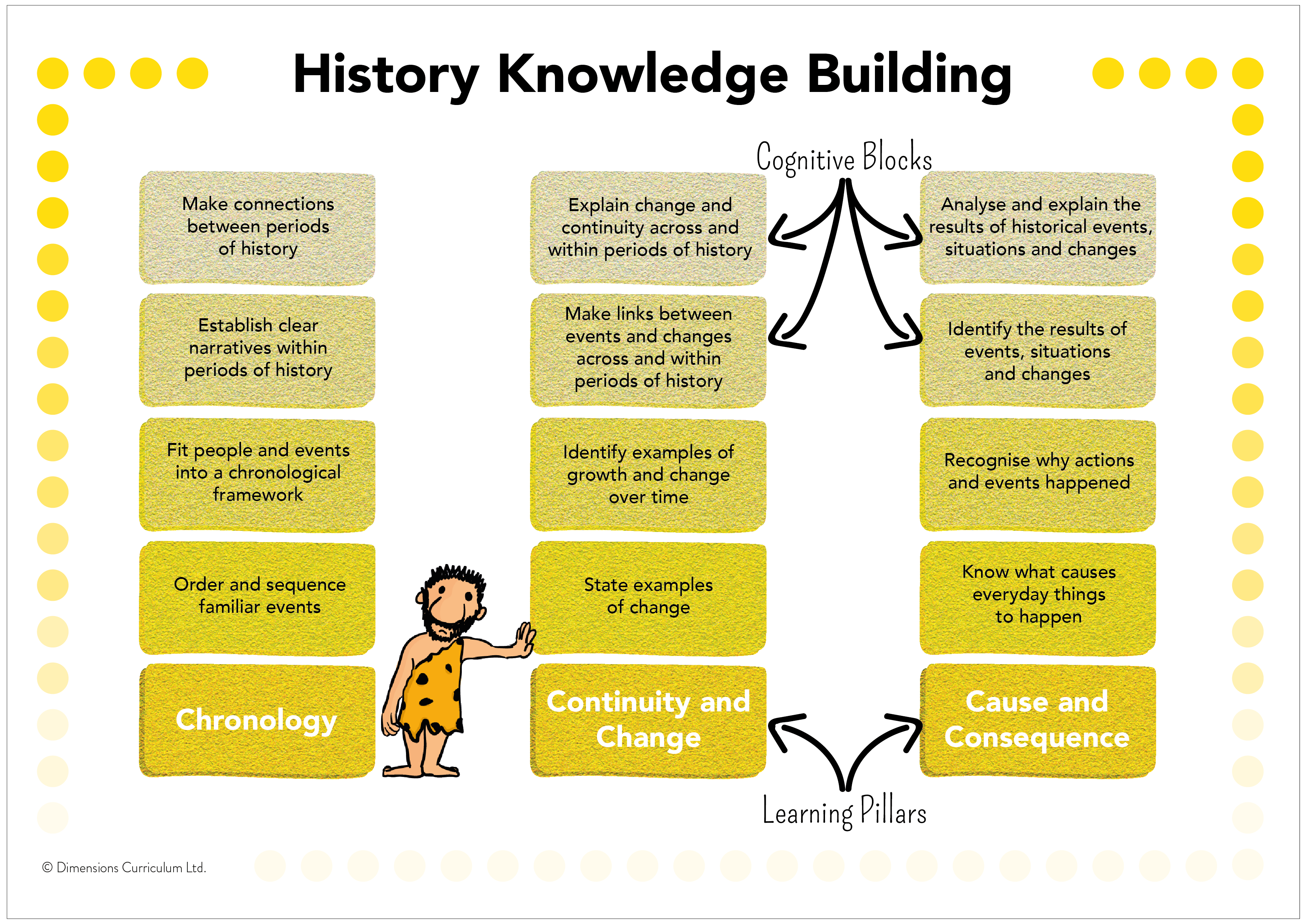
Sad, isn’t it? It’s taken a new Ofsted framework for a fair number of schools to even consider putting subjects like music and drama back on the timetable. We have been beating the drum (if you’ll pardon the pun) for an arts-rich curriculum for many years and, if you’re even reading beyond this first paragraph, I would guess you are in the same camp as us.
Funny, isn’t it? We’ve seen a sharp upturn in sales of our music, dance and drama resources over the last few months, as well as purchases of our Skills Ladder. It just shows what a hold Ofsted have over, not just mindsets, but purse strings!
We have used the Dimensions Skills Ladder as the bedrock of all our resources, as it gives such a clear progression of subject-specific, skills-based learning. Our latest curriculum model, ‘Learning Means the World’ uses this same tried and tested approach, giving school leaders confidence in rigour and coverage, and subject leaders a clear birds-eye view of progression.
Sensible, isn’t it? With the Ofsted focus particularly on curriculum cohesion and progression, we have turned our attention to analyse the area of knowledge acquisition, including highlighting possible misconceptions. Our curriculum models have always included sequencing of learning, with aspects such as Concept Flow and Learning Sequences, but we wanted to design a robust way of highlighting and pinpointing knowledge progression. The question we asked ourselves was this:- How do you show knowledge progression and cohesion from one year to the next, when the body of knowledge being studied is very different e.g. The Great Fire of London > Romans. Then, the ‘Eureka!’ moment came, and we started work.
As a result, we have introduced a new system called Knowledge Buildinginto both our Dimensions Primary Curriculum and ‘Learning Means the World’ Curriculum. Knowledge Building involves using a carefully planned progression of knowledge to ensure breadth and depth of learning within a subject. Following careful analysis of the core elements of subject areas, we have put together six distinct fundamentallearning pillarsfor each subject.
The knowledge builds on (EYFS, KS1, LKS2 and UKS2), using progressive cognitive blocks, assigned to each pillar. These are then applied to each Dimensions Thematic Unit in the form of knowledge statements, that increase in complexity through the key stages. The big picture of knowledge progression then suddenly emerges through the haze of disconnected concepts and objectives.
Simple, isn’t it? If you are looking for the best way to a cohesive curriculum with evident progression, you just found it!
Get in touch to find out more!









